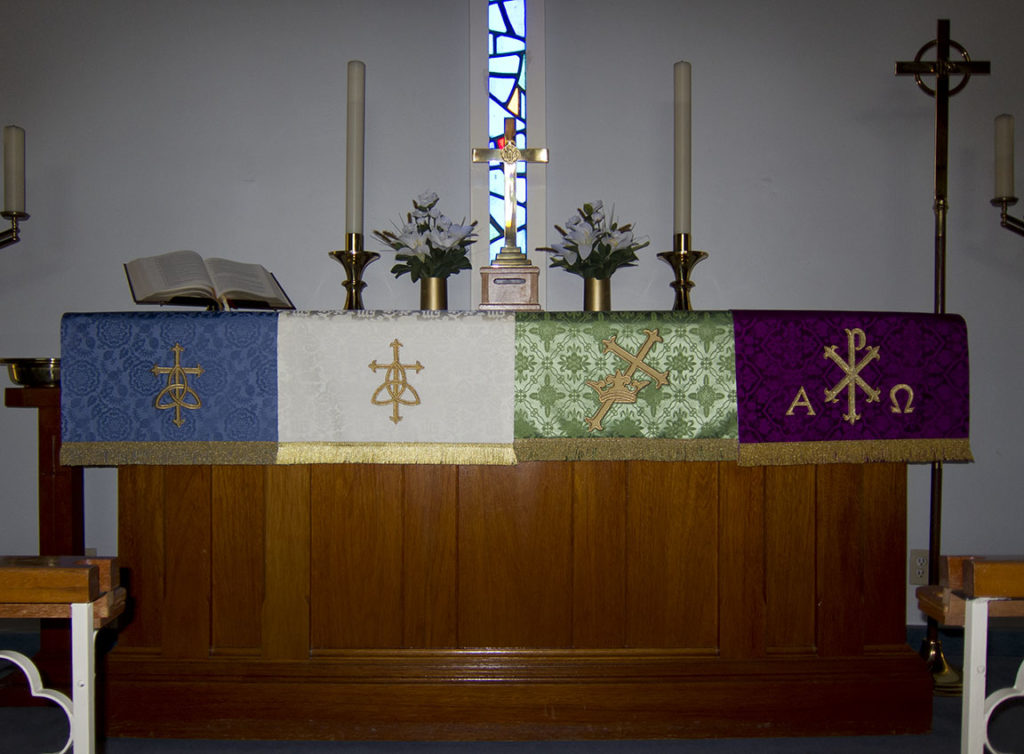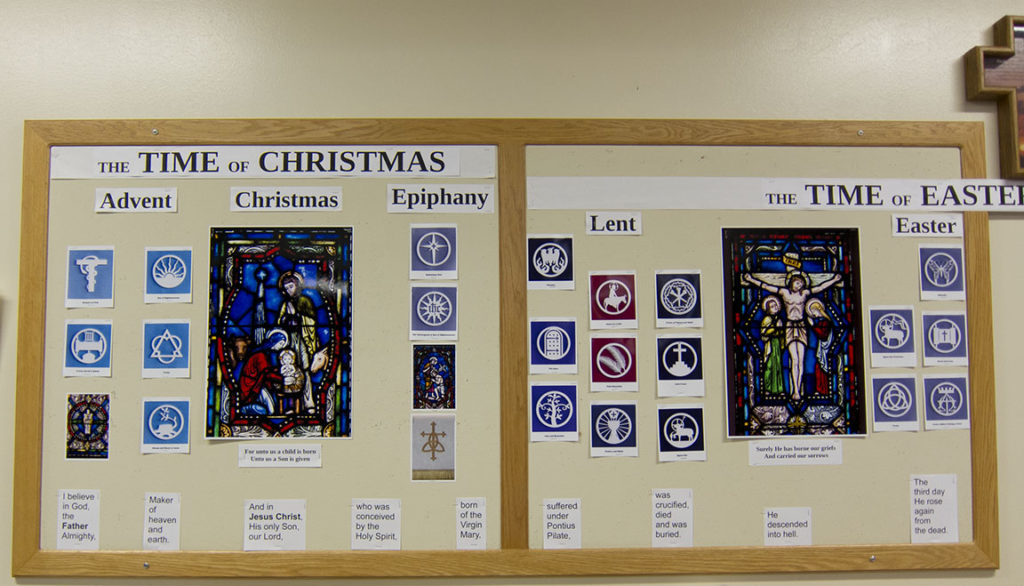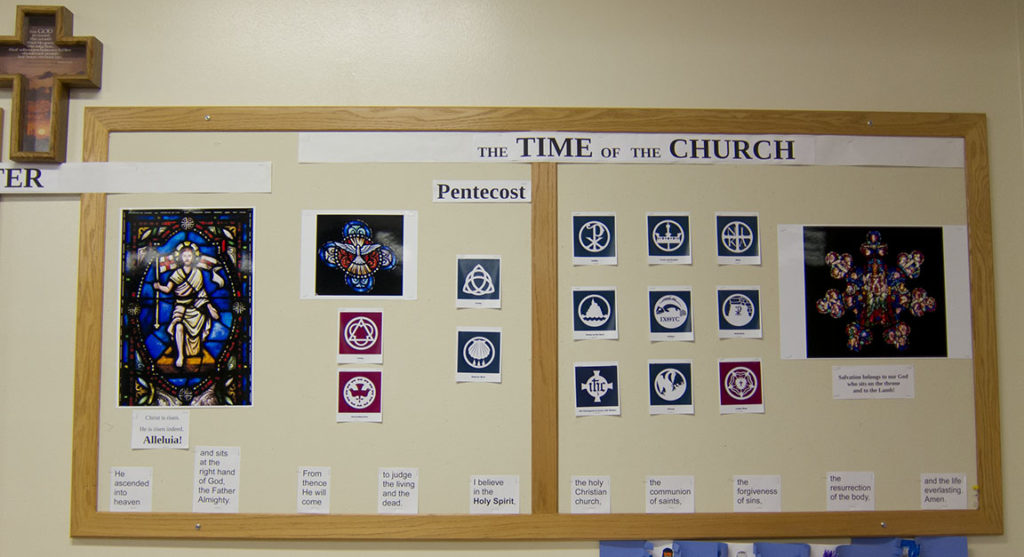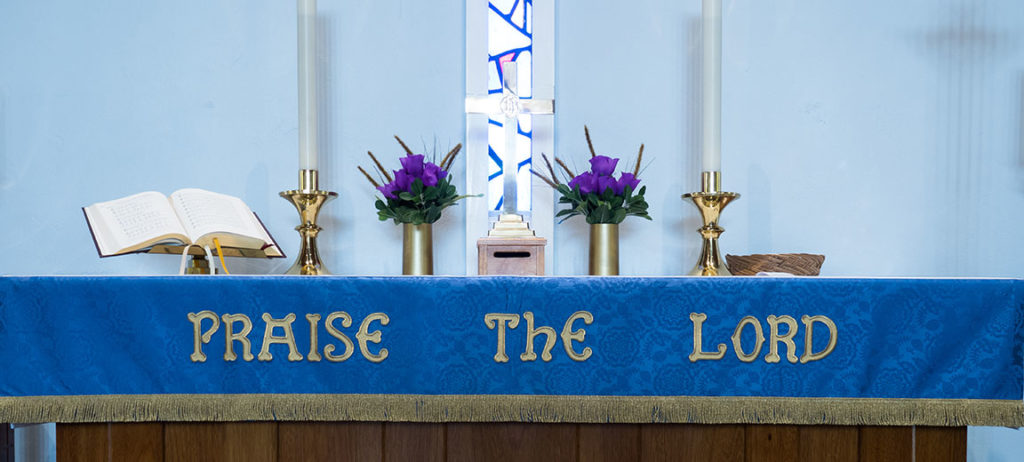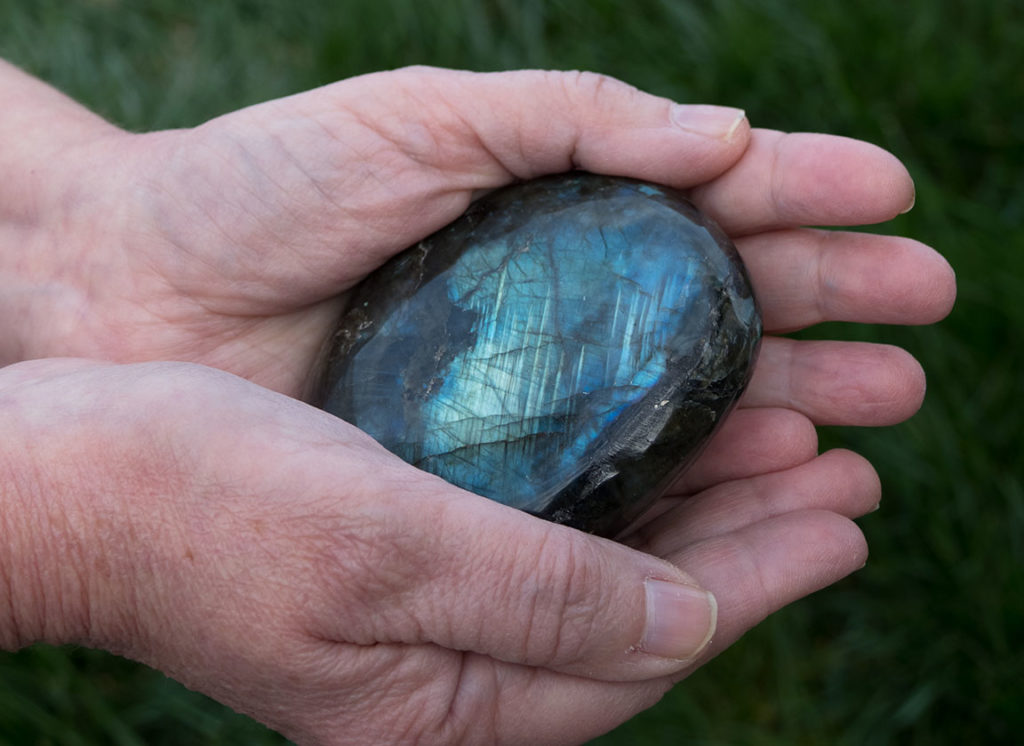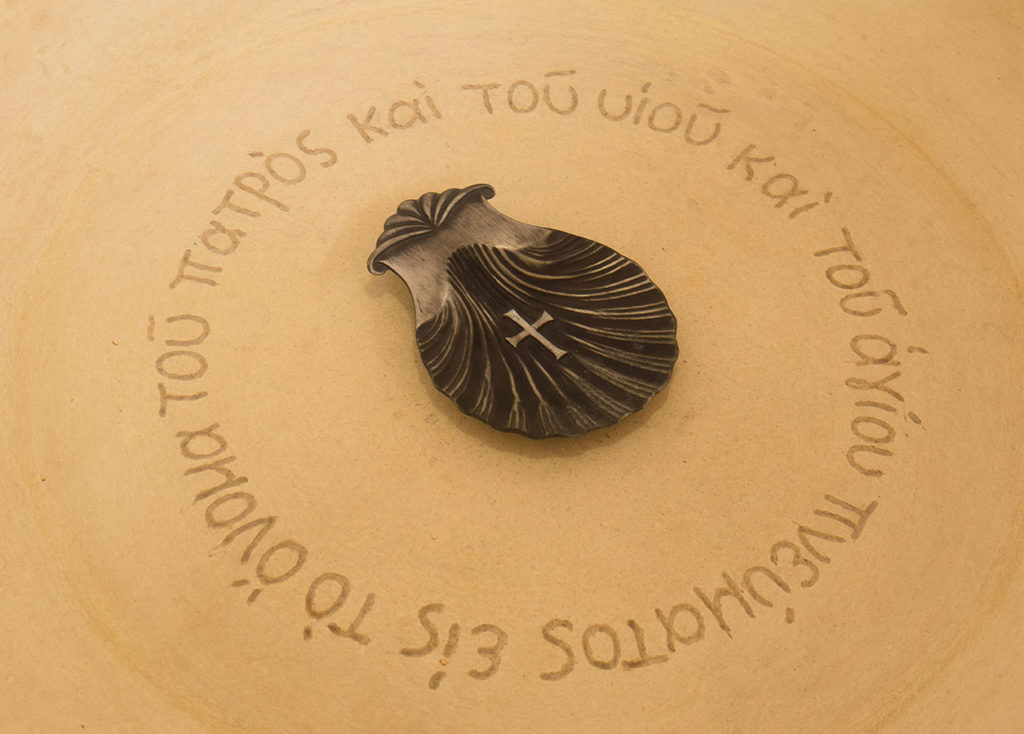Rev’d Mark B. Stirdivant, Good Shepherd Lutheran Church, Yucaipa, California
✝ sdg ✝

Young hummingbird on seedpod
You have probably heard, Seeing is believing. In practice, I don’t know about you, but I’ve heard the phrase more often employed using the negative, as in: if you don’t see it, then you shouldn’t believe it. Granted, it is essential for us even in everyday life to seek out diligently for ourselves what is actually true, before we can count on it. When a bill comes in the mail and you are overcharged, then you have that immediate instinct and urge to get on the phone and demand that they give you proof that you absolutely have no choice but to pay the increase. Until you receive a sufficient demonstration of fact, merely taking someone’s word for it simply will not convince you. You need to see it before you’ll believe it. I lived about a third of my life in the Show-Me State, Missouri—and the people there come by their state motto honestly.
You aren’t alone in thinking that way. Elijah found it hard to believe in God’s mission for him. This mighty prophet of the Lord scored a major victory over the prophets of the false god that Israel worshiped. But he also earned permanent status as evil Queen Jezebel’s public enemy #1. She would stop at nothing to search for Elijah and destroy him immediately. He would then, just after today’s Old Testament reading leaves off, complain to the Lord that he alone was the only believer left in the whole land, at least that’s what he felt. God answered him, though, with the shocking fact that He personally knew of seven thousand people in Israel who had never worshiped anyone but the Lord God Almighty. That’s what you would call a “sleeping giant,” which, by the way, I think we still have something similar in our country. Such a multitude of faithful believers would never have occurred to Elijah, because he simply didn’t see them for himself.
You may remember also that Thomas said, “Unless I see and touch the wounds of the resurrected Lord, I will never believe.” Now, of course, since Thomas was called to be an Apostle of Jesus Christ, it was essential for him especially to see Jesus risen from the dead. Otherwise, he would not have been qualified for that particular vocation in the Church. However our Lord wanted to make it clear for you and me and all believers that the true blessing is found in hearing the Gospel Word of forgiveness, paid for by His precious blood, rather than in demanding proof and seeing it in order to believe it.
In our Gospel for today, just after He fed the 5000 and walked on the stormy Sea of Galilee, Jesus here takes an unexpected turn from the idea of seeing is believing and He says instead: believing is eating and drinking! This portion of the Gospel of John needs a few moments of our reflection because there are two basic ideas, two streams you could say, flowing side by side, and soon they are about to converge together into one thought.
The first one is about seeing. Our Lord is eager to have you think differently about what it means to look upon Him, and therefore believe in Him. As I said before, our idea of seeing Jesus involves obtaining some proof that will satisfy the occasional weaknesses in our faith. That would be seeing Him, and yet not believing in Him-same problem Thomas had. Perhaps you think you’ll finally “see” Him when all that the Bible teaches starts making perfect sense in your mind and all your questions are answered. You also hope for the time when you can completely and convincingly share your faith with others and they will have nothing to reply that will make you feel embarrassed. We are right there with that one disciple who later asked Jesus, Lord, show us the Father, and that will be enough for us. You have a Show Me state? Here’s your Show-Me disciple!
But when Jesus talks about seeing, or looking upon Him, there’s something different going on. When you look to your Savior as he describes to the crowds here in John 6, you are actually trusting in Him as your Savior. You look to your Lord, because you have become convinced that all other lords, including the lord you make of yourself, will miserably fail and you will be worse off instead of better. The psalmist had this spiritual seeing in mind when he wrote, “I will lift up mine eyes unto the hills, from whence cometh my help. My help cometh from the Lord, who made heaven and earth.” You lift up your eyes, not in an imaginary way, like some people assume this verse means, but in order to see, fully see with great confidence in your heart, that the Maker of heaven and earth, the One who long ago sent ravens to feed Elijah in the desert, is the very same God who came to you, the Father who through the work of the Holy Spirit draws you to Christ His Son. Jesus is not a mere thought, nor a clever churchly concept of love just to mimic Him and try your best. He is a God who at one time in world history came to be seen, touched, heard. And even though now your eyes cannot physically see Jesus and demonstrate with proof for yourself right here in front of you, nevertheless you may still, even today, look to Him, believe and be raised up from death on the last day.
Here is where we join this together with a new meaning of eating and drinking, our Savior’s second stream of thought. Keep in mind the recent miracle of multiplied bread and fish, and note how the crowd of 5000 so enthusiastically follows Jesus, but all they are looking for is someone to feed them some more food. You may have met some little guy I know who is all about getting more and more to eat. It might seem, at first, that most of the crowd got it wrong. They were not following Jesus for the right reasons. And while that’s true, you still need to take a deeper look at it. There is something here actually that they didn’t get wrong, something that Jesus wants to encourage in them and fan into greater flame for their eternal good.
For the whole reason why Jesus desires to call Himself the bread that gives life to the world, is so that believers may diligently, maybe even desperately, search Him out and seek their complete nourishment from Him. You have to commend this multitude for so quickly catching up to Jesus and the disciples. It took a very long time for everyone to get into boats and sail directly across to the other side of the lake. But there they are, back in the city of Capernaum, and no longer out in the vast, open, grassy hillsides where they ate their miraculous meal. For these few days, this crowd has set everything in their lives aside and wrapped their entire attention around this one Man who is teaching them these words.
That’s what Jesus is talking about when He says our faith is eating and drinking. When the Holy Spirit plants faith in our hearts through Baptism, that same desperate hunger emerges within us, longing for Jesus to fill us up. Blessed are those who hunger and thirst for righteousness? Yes! That’s not only about constantly wanting to do good things for others, but first and foremost our hunger and thirst is for Jesus, who gives us His righteousness. That’s what the Bible calls a status of perfection and full acceptance to God as a replacement for our sins that had kept us away from Him. We were far away in rebellion; now we’ve been brought near. And we know only Jesus can give those great gifts to us. That’s what makes it the same as looking to Him to provide for me forgiveness, all my earthly daily bread needs, and peaceful reconciliation with my neighbor who sinned against me.
Seeing is eating and drinking! And both of these, as Jesus talks about them in this Gospel, mean your faith as it was planted in you in Baptism. When you look to Jesus and see Him as the one and only Savior in whom you may trust for ultimate resurrection and victory, then at the very same time, you are eating and drinking Him into yourself, along with the promise He will not lose you, nor leave you behind when the final day arrives. Though your eyes themselves now do not see Him in the way you had hoped, there will come the time when He will appear and you will see Him face-to-face, faith will give way completely to renewed and perfected sight, and all questions, if there are still any, will be fully answered. Until that time, you believe in Him, which is to say you look to Him, which is also to say you eat and drink Him, and thus live forever.
Not the thought of Jesus, not even the example of Jesus, but the flesh of Jesus, His real, true God and Man in one person, flesh is our bread that gives us this life. Totally for free. The real flesh-and-blood Jesus is the One to whom we look, the One true bread and drink for whom we continually hunger and thirst. In this new way, a spiritual way that only Christ can grant you as you are drawn in by the Father, you are eating His flesh and drinking His blood whenever you hear or read His Word, whenever you pray or lead your life in the calling that He has given you. And to seal that eating and drinking of His flesh as a guarantee of life within you, Jesus adds yet another way for you, this time a Sacramental way, in which He miraculously puts His Body and Blood in blest reality, under bread and wine, into your mouth, and that is at Holy Communion. Yes, eating His flesh and blood is the same as looking to Him in faith at all times, but here at this Altar you also come at our Lord’s invitation for yet another opportunity to have His resurrection and life life joined to your body, and yours to His Body the Church.
Seeing is believing? That may be needed for the things of this dead world that are sure to fail you. But with Jesus, it can be better said, for those who believe, seeing is eating and drinking—Him.
In the Name of the Father and of the ✝ Son and of the Holy Spirit.

Green Altar Parament
Readings:
1 Kings 19:1–8 Elijah’s flight into the wilderness
Ps. 34:1–8 The Angel of the LORD encamps
Eph. 4:17—5:2 be renewed in the spirit of your mind
John 6:35–51 the will of Him who sent Me, that everyone who sees the Son and believes…

